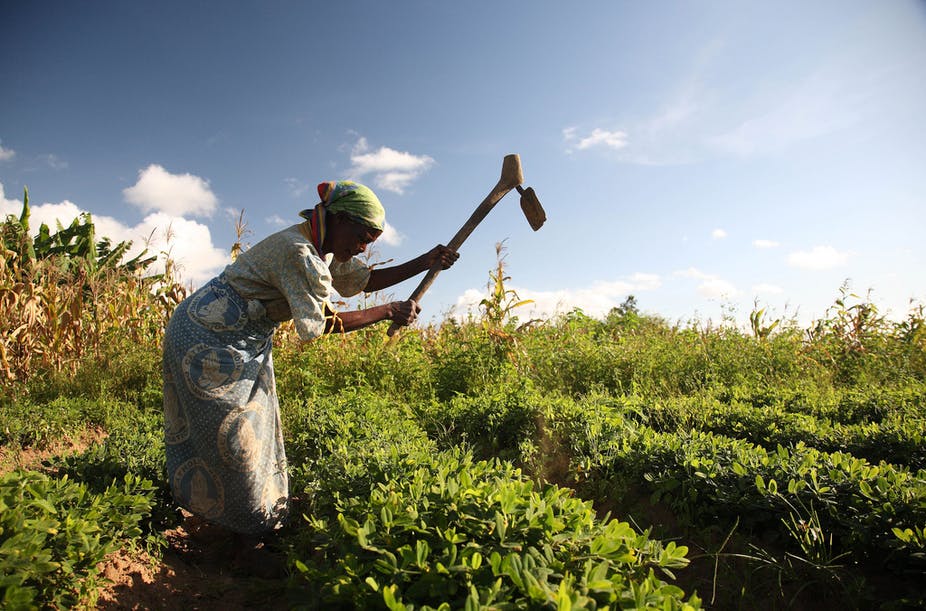
By Nyasha Dube, Zvishavane
Land is a key resource in Zimbabwe, given the country’s agro based economy.
It becomes of paramount importance for access and ownership of land to be evenly distributed so as to ensure equality and sustainability.
Women have often lagged behind in terms of land ownership owing to factors such as cultural and religious beliefs which deny them land ownership rights as they are perceived as minors who cannot own or manage assets.
Konrad Adenauer Stiftung (KAS) has been actively advocating for women’s land rights in the past few years, in Shurugwi, Mutasa and Lupane through engaging communities, traditional leaders as well as local authorities to ensure that women are granted equal access to land and properties.
KAS recently conducted a traditional leaders’ exchange visit in Shurugwi which was focusing on the role that can played by female leaders in lobbying for fellow women’s land rights.
Speaking at the sidelines of the exchange visit, Village Head Agatha Bingura from Mutasa central said it has not been easy for her being a female traditional leader and having to convince men that women have land rights.
“At first being a female village head was hard. It was unusual for women to take up leadership positions, which were previously reserved for men. As time went on people got used to it and now I work hand in hand with men to convince them that women can actually own land and properties,” she said.
Chief Mufiri from Shurugwi, who is also the founder of Mufiri Ecological and Land Use Trust shared the same sentiments.
“I work very well with female village heads in my community and they have played a critical role of standing in the forefront and fighting for the land rights of other women, Chief Mufiri said.
In Zimbabwe, land is owned by state but traditional leaders as the custodians of the land and culture have a key role to play in ensuring that men and women equally have access to land.
This is also in line with the Zimbabwe constitution and Sustainable Development Goals which speak to gender equality and equal access to resources.
Headman Tichaona Medzani from Mutasa says although the KAS project has been welcomed in his area, it is taking longer.
“People have cultural beliefs which they perceive as norms and anything different from that maybe be seen as unnatural and a source of discord in the community. However we have been working hands on to ensure that people actually understand why women should have equal access to land,” said village head Medzani.
Land being owned by state in Zimbabwe means that ownership is referenced in terms of rights to possess, rent out or sell land, and legal documents are required for one to have those rights.
However, very few women have land rights, particularly the agricultural population.
Zibusiso Moyo from Lupane Youth for Development Trust in Matebeleland North says although there are few female traditional leaders in the area, the organization has been playing a role in educating women on their land rights.
“This project has been an eye opener for most women as they have come to realise how some cultural norms were a hindrance to their land rights. We continue to urge young women to legally register and own land so they can be productive,” Moyo said.
She also urged young women to take up leadership positions and influence decision making processes.
Ownership of assets has an influence on access to financial benefits such as loan facilities, yet most women often fail to acquire loans because the do not have collateral.
This increases their vulnerability especially in the agricultural sector where they end up being used as a source of cheap labour.
According to the Zimstat 2019 report on Understanding Gender Equality in Zimbabwe, 2% of agricultural land is owned by women compared to 3.8% owned by men.
The report further states that there are more women in agricultural labour, with 81% family workers who are women, but when it comes to renumeration work there are more men.
KAS chief mobiliser Christine Chiriga who works with Catholic Commission for Justice and Peace in Mutasa said as a commission they have handled conflicts emanating from land rights issues.
“The clash between customary law and general law tends to complicate such cases hence we have been working with the church, lawyers and traditional leaders to see how we can merge these aspects as they are all critical in society,” Chiriga said.
She added that they have made progress in convincing families to jointly register and own land so that both men and women have access and control.